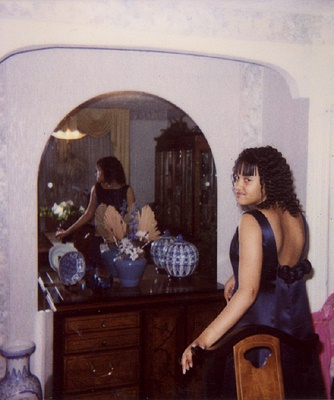All Nonfiction
- Bullying
- Books
- Academic
- Author Interviews
- Celebrity interviews
- College Articles
- College Essays
- Educator of the Year
- Heroes
- Interviews
- Memoir
- Personal Experience
- Sports
- Travel & Culture
All Opinions
- Bullying
- Current Events / Politics
- Discrimination
- Drugs / Alcohol / Smoking
- Entertainment / Celebrities
- Environment
- Love / Relationships
- Movies / Music / TV
- Pop Culture / Trends
- School / College
- Social Issues / Civics
- Spirituality / Religion
- Sports / Hobbies
All Hot Topics
- Bullying
- Community Service
- Environment
- Health
- Letters to the Editor
- Pride & Prejudice
- What Matters
- Back
Summer Guide
- Program Links
- Program Reviews
- Back
College Guide
- College Links
- College Reviews
- College Essays
- College Articles
- Back
Colorism MAG
Wouldn't they be surprised when one day I woke out of myblack ugly dream, and my real hair, which was long and blond, would take theplace of the kinky mass Momma wouldn't let me straighten? My light-blue eyeswould hypnotize them ...On TV and in magazines, you seldom see a dark-skinnedblack person. Our culture is still being led to believe that having lighter skinsomehow makes you a better person.
- I Know Why The Caged Bird Sings by MayaAngelou.
Black people with lighter skin gettreated better; I believe this discrepancy stems from the days of slavery. Ingeneral, dark-skinned blacks labored in the fields while light-skinned blacksworked indoors. Slave owners and even slaves gave lighter-skinned blacks morerespect. This segregation of shades within the same race is a seriousproblem.
Colorism has always been an issue for the black community. In thepast, some black social clubs and societies only allowed those who had lightskin. "People say that in the early days at Spelman College (an historicallyblack women' s college) young women were not admitted if they were darker than apaper bag," said one graduate.
Today, colorism is reinforced by blackchildren having white G.I. Joes and Barbie dolls with blond hair and blue eyes.It is also strengthened by the absence of dark-skinned black people on TV and inmagazines. What happened to "Black is Beautiful"? The black race ismade up of many shades, so how can anyone say one is better than another?
Our society has taught us not to accept differences. One senior I knowsaid, "My grandfather accepts me, while he treats my sister as if shedoesn't exist because she is darker." I asked a number of my classmates whata beautiful black woman looks like, and most of them gave the obvious answers:Halle Berry and Vanessa Williams.
But one response surprised me. When Iasked one classmate, she said she thought there was not just one. She namedLauryn Hill, Jada Pinkett Smith and Erykah Badu, who are all very different, buteach has something that makes her beautiful. She also mentioned her deceasedfriend, Monique: "Monique was beautiful because she was smart, always keptherself together and did not let her looks get to her."
I also askedmy classmates how they felt about seeing primarily light-skinned black women inmusic videos. They all gave the same answer: "It is messed up, but what canI do?" Most were angry about how dark-skinned black women are portrayed inmusic videos: "When they do show dark-skinned girls, they are greased upwith a These images of dark- and light-skinned black women affect peopledifferently. However, it is clear that the absence of beautiful dark-skinnedwomen and the flood of images of light-skinned women increases self-hatred anddivision. The self-hatred comes in many forms; when I was in middle school, ablack girl told me she only wanted to marry a white man so her children wouldhave light skin and white features. A junior admits her parents don't approve ofher boyfriend because of his color.
"My boyfriend and I are bothDominican, but he is darker than me. My mother thinks that since he's darker, ifwe got married and had children, they'd have bad hair."
This divisionexists in our communities, schools and even families. It's ridiculous that we asblack people do the very thing to each other that was done to us. Instead ofdividing, we need to unite to address more important issues in the blackcommunity, like homelessness, drugs, violence, HIV/AIDS and poverty. We need tobuild stronger communities and help instead of judge each other. We all deal withsome sort of racism daily - whether it's racial profiling or an old ladyclutching her bag tighter in an elevator. We shouldn't discriminate against eachother. More attention needs to be paid to a person's character rather than theshade of his or her skin.
The only way for change is making your voiceheard. You are the consumer who buys albums and purchases magazines. If you don'tlike what you see, speak out, write letters, send emails. Make your voiceheard.

© Anonymous
Similar Articles
Previous Next

0 articles 0 photos 2 comments